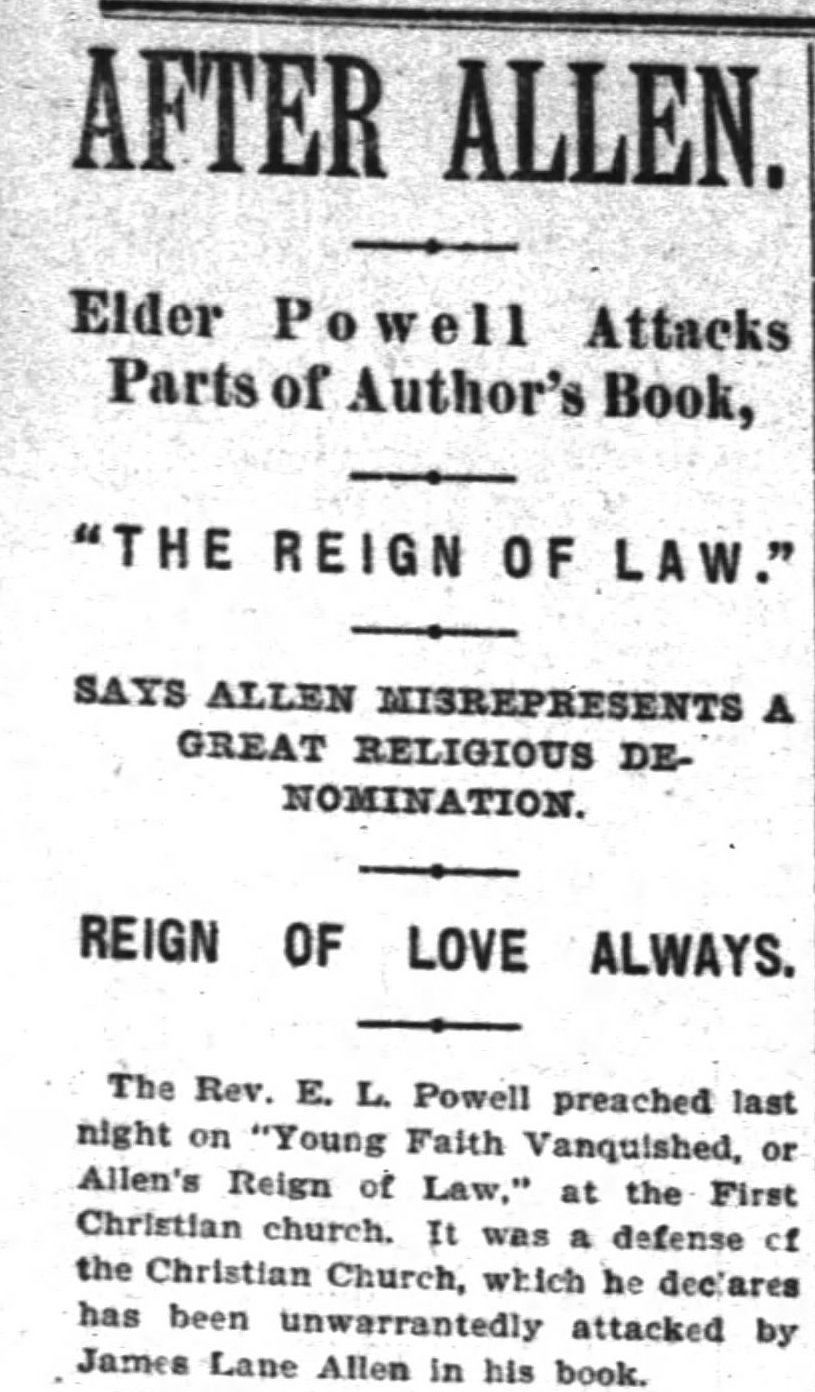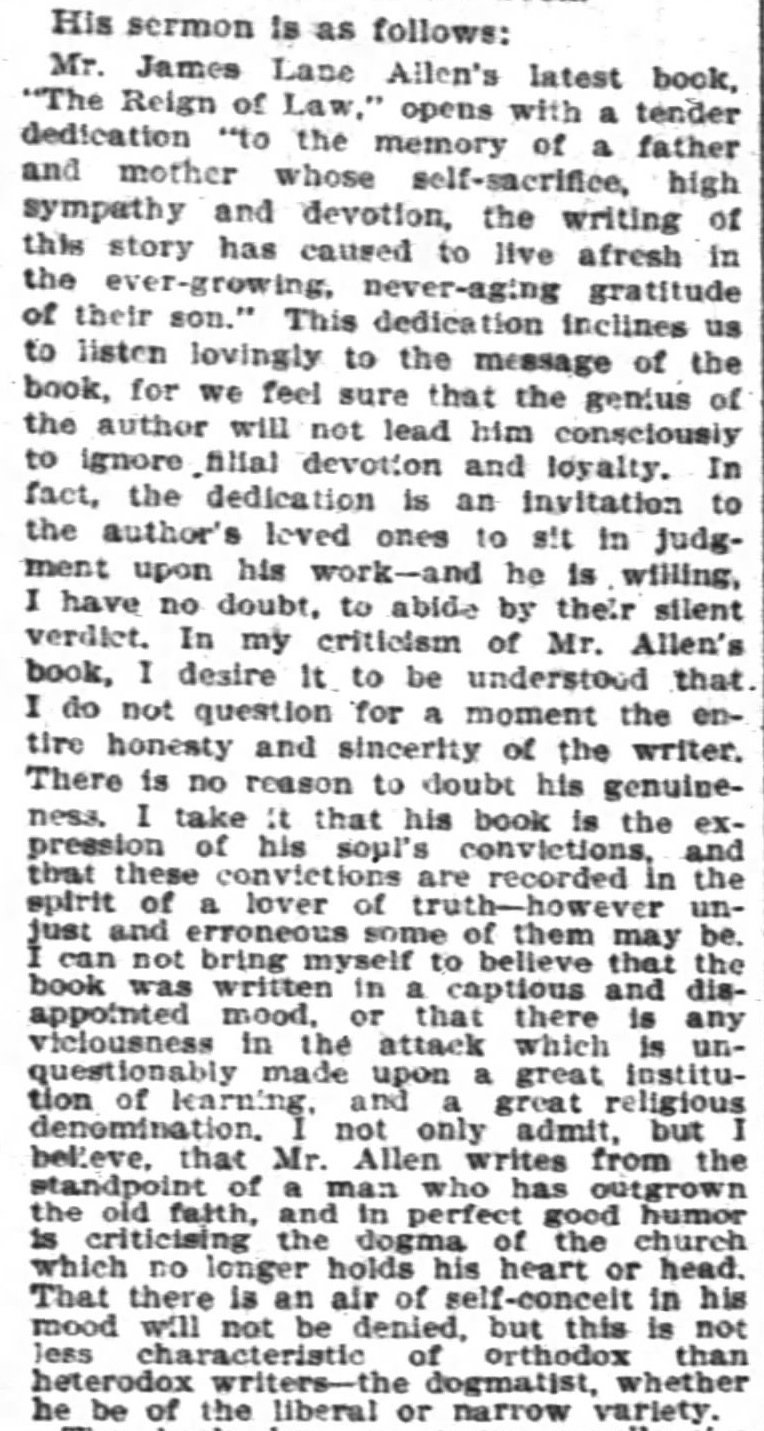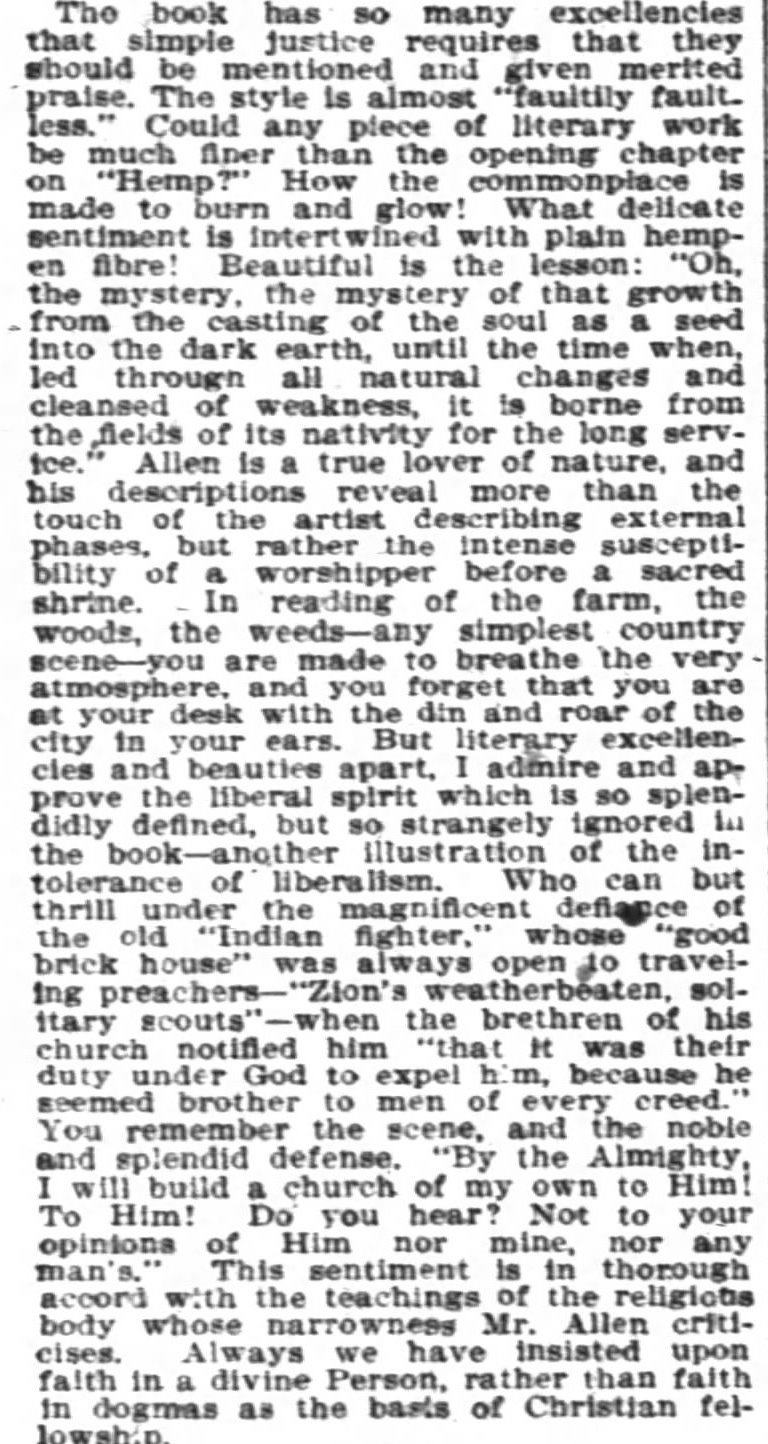1900 | James Lane Allen Publishes "The Reign of Law: A Tale of the Kentucky Hemp Fields"
- Kentucky Hempsters

- Jan 1, 1900
- 4 min read
Updated: Apr 7, 2020

The Reign of Law: A Tale of the Kentucky Hemp Fields is one of the first pieces written discussing hemp culture in the bluegrass. It includes a poetic description of the hemp in the fields, illustrating a story, while constituting an image of all life.
Written by famous Kentucky author, James Lane Allen, the book offers a poetic description of the hemp industry during that time. It was also controversial in that it was one of the first American novels to deal openly with religious doubt and Darwinism.

About James Lane Allen
James Lane Allen (December 21, 1849 – February 18, 1925) was born in Lexington, Kentucky and became a famous American novel and short story writer. He spent his youth in Kentucky during the Civil War and Reconstruction period, which heavily influenced his work. In 1872, he completed his studies at Transylvania University and there he was a teacher until he decided to become a writer in 1884.
In 1900, Allen published “The Reign of Law: A Tale of the Kentucky Hemp Fields.” It was one of the first pieces written discussing hemp culture in the bluegrass, and includes a poetic description of the hemp in the fields, illustration a story, while constituting an image of Kentucky life in 1865. The Courier-Journal called it “The Greatest Novel of the Year” and the New York Times published a rave review of the book, stating:
“In all the characteristics that give Mr. Allen’s novels such distinction and charm, “The Reign of Law” is perhaps supreme. The initial chapter, “Hemp,” is the loveliest of idyls. One may read and reread it for pure delight in its melody, or, almost oblivious of the music, may abandon one’s self to the rapture of nature breathing through it all; or, forgetting both, may ponder only the mysterious analogy between the story of the seed and that of the human soul” (Courier-Journal, 1900).

However, the book was also controversial, especially in his home state of Kentucky. The Reign of Law was one of the first American novels to deal openly with religious doubt and Darwinism. Local churches criticized the novel and claimed that Allen misrepresented a great religions denomination. The Rev. John McGarvey, the former president of what is now the Lexington Theological Seminary, castigated Allen in a widely publicized sermon. The Lexington Herald-Leader joined in, adding that "dirt and dust" were "ruining the author's mind.” Another local pastor, Rev. E. L. Powell, shared the same sentiments and had his critical sermon published in the Louisville Courier-Journal.
The criticism stung Allen, who wrote that Kentucky "never did appreciate its best people." He never returned to Lexington — not even when the Lexington Public Library dedicated a portrait of him in 1916. "My returning now would seem like vainly attempting to pass over into a vanished land," Allen wrote in a letter to his lifelong friend, M.A. Cassidy, the superintendent of Lexington's public schools.
The Fountain to the Youth
Cassidy continued to keep Allen connected to his hometown. During the last decade of his life, Lexington schools celebrated his birthday each December 21, and the children would write notes and telegrams of good wishes. Allen was heart warmed by the letters, and always sent thank-you letters. He ended a 1922 interview at his New York home with a journalism student from Lexington by saying, "Give my love to the Kentucky children.”
When Allen died in 1925, his will left his entire estate to Lexington to build a pool for the city’s children. By the time the funds were allocated to the project, the amount had dwindled and local officials decided to install a fountain instead.

The fountain was installed and dedicated on October 15, 1933 to symbolize “the spirit of youth, with its tender dreams and delicate and beautiful aspirations, which found so much appreciation in the poetical soul of the author,” the Herald-Leader stated when the fountain was dedicated. Today, the fountain still stands in historic Gratz Park and remains a symbol of Lexington (Herald-Leader, 2014).
Scarlet Gate
1020 Lane Allen Road
Lexington, KY 40504
*Not Public

"Scarlet Gate," originally built around 1795 in Lexington, Kentucky, was the boyhood home of author James Lane Allen. The estate includes a two-story house dating back to about 1795 — where Allen lived until about age 22 — with a guest house, stable, and a small apartment attached. He described living at the estate in the introduction to A Kentucky Cardinal, first published in 1894. Allen died in 1925 after moving to New York. The Lexington School purchased the 12.6 acre property in 2011 (Herald-Leader, 2011). Today it serves as a private residence. *Please do not attempt to tour, or access, the property.
Blog Sources
Allen, J., & Fenn, H. (1900). The reign of law: A tale of the Kentucky hemp fields. New York: Macmillan ;
Baskervill, W. (1903). Southern writers: Biographical and critical studies. Volume II. Nashville, Tenn.: Pub. House of the M.E. church, South
James Lane Allen. (2013, July 4). Retrieved January 3, 2016, from http://public.wsu.edu/~campbelld/amlit/allen.htm









Comments